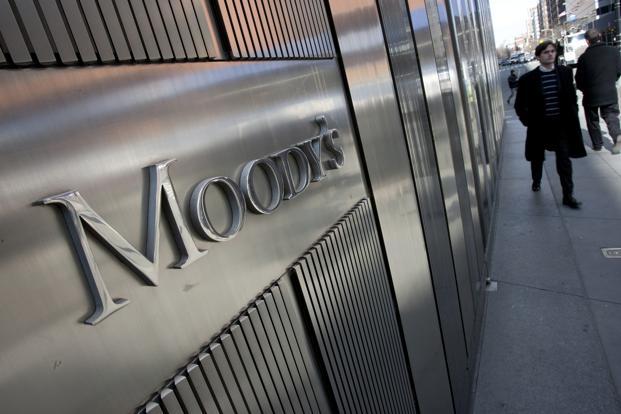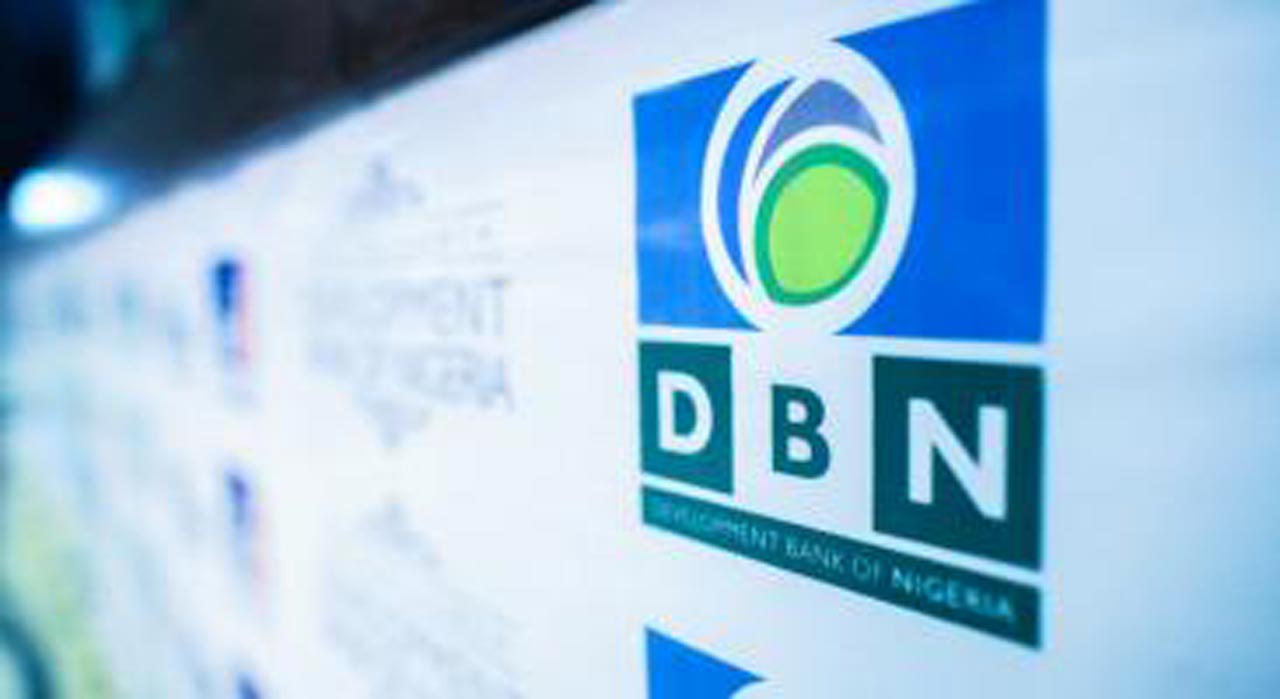Banking
Moody’s Downgrades 8 Nigerian Banks

By Modupe Gbadeyanka
Renowned global rating firm, Moody’s Investors Service, has downgraded to B2 from B1 the long-term local currency deposit and issuer ratings of four Nigerian banks; Access Bank Plc, Guaranty Trust Bank Plc, (GTBank), United Bank for Africa Plc (UBA) and Zenith Bank Plc as well as the long-term local and foreign currency issuer ratings of Bank of Industry (BoI), a Nigerian development bank.
Moody’s also downgraded to B3 from B2 the long-term foreign currency deposit ratings of Access Bank, GTBank, UBA and Zenith Bank, as well as those of Union Bank of Nigeria Plc, First Bank of Nigeria Limited and Sterling Bank Plc.
In a statement issued by Moody’s last week, it said it concurrently downgraded the baseline credit assessments (BCAs) of Zenith Bank and GTBank to b2 from b1.
Explaining the reason for this, Moody’s said the rating action follows its downgrade of Nigeria’s government bond ratings to B2, with a stable outlook, from B1, with stable outlook, on November 7, 2017 and reflects the government’s reduced capacity to provide support to Nigerian banks in times of stress and the banks’ significant holdings of government securities linking their credit profiles to that of the government.
The decision to downgrade banks’ long-term foreign currency deposit ratings follows the downgrade of the relevant country ceiling for foreign currency deposits to B3 from B2.
Furthermore, it noted that the primary driver of the rating action is the weaker capacity of the government to provide support to banks, in case of stress, as reflected in the downgrade of the sovereign issuer rating to B2 from B1.
Subsequently, Access Bank’ and UBA’s long-term local currency deposit ratings and Bank of Industry’s long-term issuer ratings no longer benefit from a one-notch uplift from their b2 BCAs (or standalone credit profile, as is the case for Bank of Industry) as these are now at the same level as the government bond rating.
It noted that the long-term local currency deposit ratings of Sterling Bank, Union Bank and First Bank have been affirmed at B2, as their b3 BCAs continue benefiting from one notch of government support uplift.
In addition, it said the secondary driver of the rating action is the Nigerian banks’ significant holdings of government securities, which generally exceed 100 percent of their core capital, linking their credit profile to that of the government.
In view of the correlation between sovereign and bank credit risk, the banks’ standalone credit profiles and ratings are constrained by the rating of the government.
As a result, the BCAs for Zenith Bank and GTBank have been downgraded to b2 from b1, in line with the downgrade of the government issuer rating, despite the resilient financial performance witnessed by both banks over the last 24 months.
The BCAs of the other rated Nigerian banks have been affirmed as they already capture risks emanating from their sovereign exposures.
Moody’s said it could upgrade the ratings if the banks can demonstrate ability to contain non-performing loans while maintaining solid core profitability and capital generation could put upward pressure on the banks’ BCAs or lead to a stabilisation in the outlook in the case of First Bank.
“An upgrade of the banks’ global scale deposit and issuer ratings would be contingent on an improvement in the operating environment that translates to an upgrade of Nigeria’s sovereign rating.
“The ratings could be downgraded in the event of a further downgrade of the sovereign and/or if we assess that the government’s willingness to provide support in the future will decline below our current assumptions.
“The ratings could also be downgraded if we anticipate that a deterioration in the macro environment poses downside risks for asset quality and/or the capital generation capacity of the banks beyond what is already assumed in the ratings,” the rating agency disclosed.
Banking
Access Bank Opens Branch in Malta to Strengthen Europe-Africa Trade Ties

By Modupe Gbadeyanka
To strengthen Europe-Africa trade ties, Access Bank has opened a new branch in Malta. It will focus on international trade finance, employing approximately 30 people in its initial phase, with plans for controlled expansion over time.
It was learned that this Maltese branch was established by Access Bank UK Limited, the subsidiary of Access Bank Plc, which is also the subsidiary of Access Holdings Plc, which is listed on the Nigerian Exchange (NGX) Limited.
Access Bank Malta Limited commenced operations after obtaining a banking licence from the European Central Bank (ECB) and the Malta Financial Services Authority (MFSA).
Access Bank said the licence marks a transformative milestone in bolstering Europe-Africa trade flows.
Malta, a renowned international financial centre, and a gateway between the two continents, is strategically positioned to play a pivotal role in advancing commerce and fostering economic partnerships.
This strategic expansion into Malta enables The Access Bank UK Limited to leverage growing trade opportunities between Europe and Africa.
It underscores the organisation’s commitment to driving global trade, financial integration, and supporting businesses across these regions.
“By establishing operations in Malta, we will gain a foothold in a market that bridges European and North African economies, moving us one step closer to our goal of becoming Africa’s Gateway to the World.
“It further enhances our bank’s capacity to support clients with innovative solutions tailored to cross-border trade and investment opportunities,” the chief executive of Access Bank, Mr Roosevelt Ogbonna, stated.
“Europe has emerged as Africa’s leading trading partner, driven by initiatives such as the Economic Partnership Agreements between the EU and African regions and the African Continental Free Trade Area (AfCFTA).
“With Europe-Africa economic relations entering a new phase, The Access Bank Malta Limited is ideally positioned to deepen trade and meet the financing and banking needs of our clients in these expanding markets,” the chief executive of Access Bank UK, Mr Jamie Simmonds, commented.
Also speaking, the chief executive of Access Bank Malta, Renald Theuma, said, “Malta is uniquely positioned as a bridge between Europe and Africa, making it an ideal location for our subsidiary. This move allows The Access Bank Malta Limited to engage more closely with customers in Europe and deliver tailored financial solutions that drive growth and connectivity across both continents.”
Banking
Goldman Sachs, IFC Partner Zenith Bank, Stanbic IBTC, Others to Empower Women Entrepreneurs

By Adedapo Adesanya
The International Finance Corporation (IFC) and Goldman Sachs have announced a new partnership with African banks, including Nigeria’s Zenith Bank and Stanbic IBTC Nigeria to support the Goldman Sachs 10,000 Women initiative, a joint programme launched in 2008 to provide access to capital and training for women entrepreneurs globally.
The two Nigerian banks are part of nine financial institutions from across Africa which have agreed to join the 10,000 Women initiative committing to leverage the business education and skills tools the programme provides to create more opportunities for women entrepreneurs across the continent by providing access to business education.
Others banks include Stanbic Bank Kenya, Ecobank Kenya, Ecobank Cote d’Ivoire, Equity Bank Group, Banco Millenium Atlantico – Angola, Baobab Group, and Orange Bank.
Speaking on this, Ms Charlotte Keenan, Managing Director at Goldman Sachs said – “10,000 Women has had a powerful impact to date, but we know that there are more women to reach and more potential to be realized.
“We are delighted to partner with IFC to supercharge the growth of women-owned businesses across Africa, and mainstream lending to female business leaders. We remain committed to supporting entrepreneurs with the access to education and capital that they need to scale.”
Since 2008, the 10,000 Women initiative has provided access to capital and business training to more than 200,000 women in 150 countries.
“This expanded initiative marks a significant step forward in creating equitable economic opportunities for women in Africa, enabling them to build stronger, more resilient businesses and to realize their entrepreneurial goals,” said Ms Nathalie Kouassi Akon, IFC’s Global Director for Gender and Economic Inclusion.
Goldman Sachs’ 10,000 Women initiative complements the Women Entrepreneurs Opportunity Facility (WEOF), launched in 2014 by Goldman Sachs and IFC as the first-of-its-kind global facility dedicated to expanding access to capital for women entrepreneurs in emerging markets.
Banking
Development Bank of Nigeria Wins Financial Inclusion Leadership Award

By Aduragbemi Omiyale
In recognition of its unwavering commitment to fostering access to financing for Nigerian micro, small and medium enterprises (MSMEs), Development Bank of Nigeria Plc has been rewarded with the Financial Inclusion Leadership Award at the Champions of Inclusion Nigeria Financial Inclusion Awards.
This was at the 2024 International Financial Inclusion Conference (IFIC) organised by the Central Bank of Nigeria (CBN) in collaboration with the World Bank and other stakeholders.
The chief executive of the lender, Mr Tony Okpanachi, said the recognition affirms the company’s efforts in expanding access to financial services for MSMEs in Nigeria.
“We are honoured to receive the Financial Inclusion Leadership Award, which is a testament to our bank’s commitment to expanding access to financial services for all Nigerians. This award recognises our efforts to bridge the financial inclusion gap, particularly for a priority sector like the MSMEs.
“Additionally, this award is a validation of our strategic focus on driving financial inclusion for small businesses, and we are proud to be at the forefront of this initiative that drives that. We will continue to innovate and expand our financial inclusion programmes, ensuring that more Nigerian small and startup businesses have access to services,” he stated.
On his part, the Chief Operating Officer of DBN, Mr Bonaventure Okhaimo, said the accolade demonstrates the firm’s dedication to driving financial inclusion and economic growth in Nigeria.
“This award acknowledges our Bank’s innovative approach to widening opportunities for MSMEs in Nigeria to grow and scale their businesses,” he said.
“This award will motivate us to continue pushing the boundaries of financial inclusion, exploring more innovative solutions and partnerships to expand our reach and impact.
“We are committed to ensuring that more small businesses and startup enterprises in Nigeria have access to financial services, this award will further inspire us to accelerate our efforts in this regard,” he stated.
-

 Feature/OPED5 years ago
Feature/OPED5 years agoDavos was Different this year
-
Travel/Tourism8 years ago
Lagos Seals Western Lodge Hotel In Ikorodu
-

 Showbiz2 years ago
Showbiz2 years agoEstranged Lover Releases Videos of Empress Njamah Bathing
-

 Banking6 years ago
Banking6 years agoSort Codes of GTBank Branches in Nigeria
-

 Economy2 years ago
Economy2 years agoSubsidy Removal: CNG at N130 Per Litre Cheaper Than Petrol—IPMAN
-

 Banking2 years ago
Banking2 years agoFirst Bank Announces Planned Downtime
-

 Sports2 years ago
Sports2 years agoHighest Paid Nigerian Footballer – How Much Do Nigerian Footballers Earn
-

 Technology4 years ago
Technology4 years agoHow To Link Your MTN, Airtel, Glo, 9mobile Lines to NIN


















